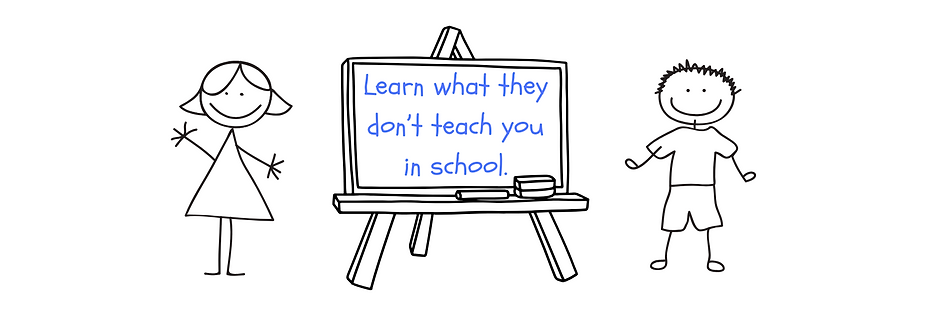
Life has a way of throwing curveballs. Whether it is an unexpected car repair, a medical emergency, or even a sudden job loss. When financial surprises hit, do you want to scramble for cash, take on debt, or confidently say, “I’ve got this”? That’s where an emergency fund comes in.
This isn’t just another financial buzzword. It’s your safety net, your peace of mind, and your financial independence rolled into one. And yet, most people either don’t have one or don’t know how much they actually need.
The good news? You can start building an emergency fund today—no matter your income, expenses, or current financial situation. This blog post will break it down so you can take action now.
What You’ll Learn:
What an emergency fund is and why it’s non-negotiable.
How to calculate the right amount for you.
A real-life story of how an emergency fund saved someone from disaster.
Strategies to build your fund faster—even if you’re living paycheck to paycheck.
Simple steps to get started today.
What Is an Emergency Fund?
An emergency fund is a stash of cash set aside for unexpected expenses. It’s not for vacations, new gadgets, or even routine bills. This money is reserved for true emergencies—things like medical bills, car breakdowns, home repairs, or unexpected job loss.
Think of it as self-insurance. Instead of relying on high-interest credit cards or borrowing from friends and family, you have a financial cushion that gives you options and control when life throws you a financial punch.
Why Does It Matter?
Without an emergency fund, every financial hiccup can turn into a crisis.
Avoid Debt: A fully funded emergency account prevents you from relying on credit cards or payday loans.
Reduce Stress: Knowing you have a buffer means you don’t have to panic when an unexpected expense arises.
Increase Financial Freedom: With an emergency fund in place, you’re in control. You can leave a toxic job, cover a deductible, or manage an urgent home repair without financial anxiety.
Having an emergency fund isn’t about if you’ll need it—it’s about when you’ll need it.
How Much Should You Save?
A good rule of thumb is to save 3 to 6 months’ worth of essential expenses. But if that feels overwhelming, start with a smaller, achievable goal—$500 to $1,000 can still make a massive difference in an emergency.
Using an Example to Calculate It
Here’s how to calculate your ideal emergency fund amount in two easy steps.
Step 1: List out and add all your essential monthly expenses (rent/mortgage, utilities, food, insurance, transportation, debt payments).
For example:
Rent: $1,500
Utilities: $200
Groceries: $400
Insurance: $250
Transportation: $200
Minimum debt payments: $250
Total essential expenses (per month): $2,800
Step 2: Multiply by the number of months you want to cover (3, 6, or more).
3-month fund: $2,800 × 3 = $8,400
6-month fund: $2,800 × 6 = $16,800
If those numbers seem high, don’t stress. You can build up to your goal over time.
A Transformation Story
Meet Ann. A year ago, Ann was living paycheck to paycheck. She had a steady job, but no savings. Then, life happened. Her car broke down, and without an emergency fund, she had to put the $1,500 repair bill on a high-interest credit card. The balance grew, and soon, she was struggling to keep up with payments.
Determined not to be caught off guard again, Ann started small—$25 per paycheck into a high-yield savings account. She sold a few unused items, cut back on takeout, and picked up a few freelance gigs.
Within eight months, she had $3,000 saved. When she later lost her job unexpectedly, she had enough saved to cover rent and necessities while she job hunted. Instead of panic, she had a plan.
Today, Ann has a fully funded 6-month emergency fund and the confidence that she can handle whatever comes her way.
Strategies to Building Your Emergency Fund Faster
Even if saving feels impossible, these strategies can help you get there:
Automate It: Set up an automatic transfer to your emergency fund each payday. Even $10 or $20 adds up over time.
Cut Unnecessary Expenses: Review your subscriptions, dining habits, and impulse purchases. Redirect that money into savings.
Sell What You Don’t Need: Old gadgets, clothes, and furniture can bring in quick cash.
Find a Side Hustle: Gig work, freelancing, or monetizing a hobby can supercharge your savings.
Use Windfalls Wisely: Tax refunds, bonuses, and birthday money? Put a portion into your emergency fund instead of spending it all.
Why This Is One Of The Most Important Financial Moves You'll Make
An emergency fund is more than just money in a savings account. It’s freedom, security, and peace of mind. It gives you the power to make smart financial decisions, avoid unnecessary debt, and navigate life’s challenges without fear.
Without an emergency fund, every setback can turn into a financial disaster. But with one? You’re in control.
Steps To Get Started Today
Open a separate savings account (preferably a high-yield one).
Set a small initial goal—even $100 is a start.
Automate a small amount from each paycheck.
Reduce one non-essential expense this month and put the savings toward your fund.
Celebrate small wins—every dollar saved is a step toward financial security.
Final Thoughts
If you’ve been putting off building your emergency fund, now is the time to start. Even if you can only save a little at a time, what matters is consistency.
Your future self will thank you for taking action today. Because when life happens—and it will—you’ll be ready.
Now, what’s your first step?

ความคิดเห็น